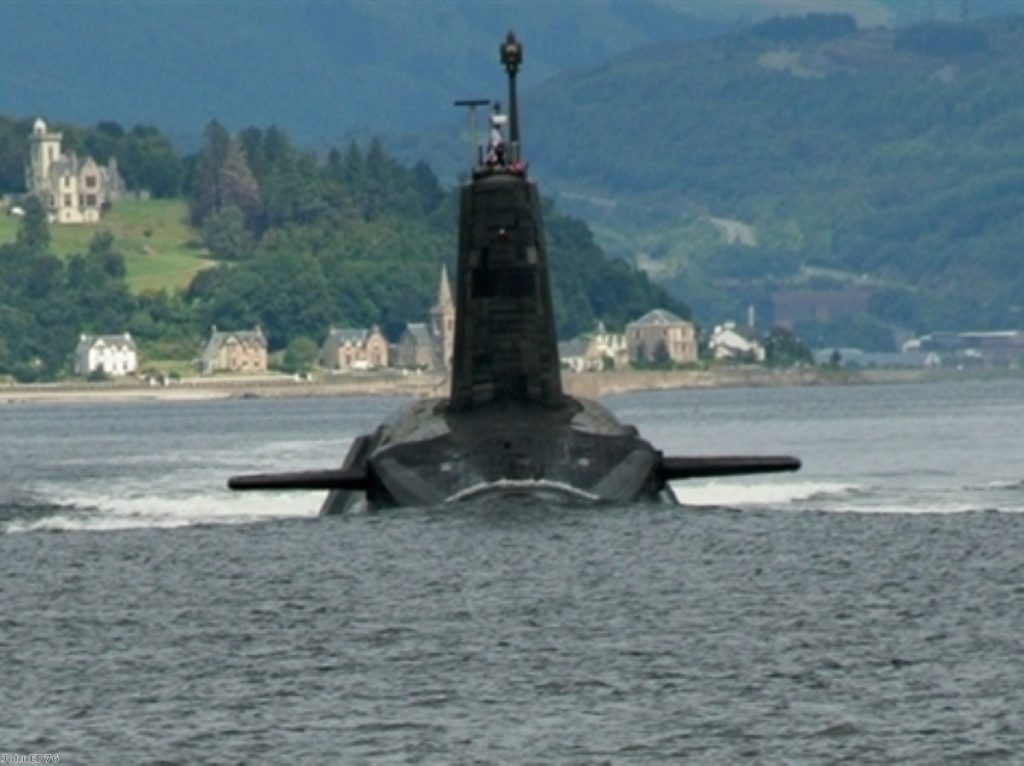Trident intervention shows the Tories are in real trouble
It is a sign of just how badly the Conservative election campaign is going, that they've today resorted to claiming Labour will do a deal with the SNP to scrap the Trident nuclear weapons system.
Tory defence secretary Michael Fallon today "challenges" Miliband to rule out any such plan.
This is like challenging water to stay wet. Labour both in Scotland and nationally have repeatedly committed to fully replacing Trident. They have also repeatedly ruled out any deal with the SNP to do otherwise.
The SNP meanwhile have said that while they will always vote against replacing Trident, it would not be an issue that would cause them to bring down a Labour government.


The Tory claim is essentially made up. The simple fact is that whoever forms the next government will replace Trident. Even if the SNP and others vote against its renewal, Labour and the Tories will easily be able to pass a vote for a like-for-like replacement.
But the fact that the Conservatives have chosen Trident as their (fictitious) dividing line with Labour is itself revealing.
Recent polling has shown that support for fully renewing Trident is lukewarm at best. A YouGov poll for the Times in January found that just one-in-four voters think Trident should be fully replaced as opposed to 56% of voters who think it should be downgraded or scrapped altogether.
At a total lifetime cost of over £100 billion, Trident is a massively expensive and redundant system. Committing to fully replacing it is not anything like the great vote-winner the Tories seem to think it is.
Even if Labour were planning to scrap Trident, it would not shift many votes either way. YouGov found that a Labour commitment to scrap the weapons system would cause 18% to feel more favourable to Labour as opposed to 20% feeling less favourable. Among Labour voters, the figures were 27% more favourable and 20% less favourable. If the Conservatives are hoping their false claims about Labour's defence policies will scare voters into their arms, they will be disappointed.
The timing of the Tory intervention is also telling. It comes as a series of new polls suggest that the party are making no progress in the marginal seats they need to win from Labour in order to form the next government.
Far from there being the long-predicted 'swing back' to the Tories as the election nears, Lord Ashcroft's polls suggest that Labour have actually cemented their position in many of the target seats they need to win.
National polls are also failing to show the 'crossover' Tory campaign chief Lynton Crosby has long promised the party. With just four weeks to go, the Conservatives remain wedged in almost exactly the same place they have been for the past four months.
With little real progress being made, the party's leading figures are becoming increasingly shrill.
Writing in the Times today, Fallon attacks Miliband as a 'backstabber'.
"Ed Miliband stabbed his own brother in the back to become Labour leader. Now he is willing to stab the United Kingdom in the back to become prime minister and put our country’s security at risk," he writes.
Even one of the Tories' strongest supporters in the press today described this as "way too personal" and "embarrassing". It is also likely to be ineffectual.
Embarrassing: Way too personal from Michael Fallon against Ed Miliband via @SamCoatesTimes pic.twitter.com/wU64AVMvCD
— Tim Montgomerie ? (@montie) April 8, 2015
On defence, as on other issues, the Conservative party often gives the impression of being somehow stuck in the Cold War era. Back in the 80s, the issue of Britain's nuclear deterrent was a real and pressing one. As the above polls show, it no longer is.
At best Fallon's intervention today will have moved on the debate from Labour's popular non-dom tax policy announcement. At worst it has simply reinforced an image of the Tories as being stuck in the past.









